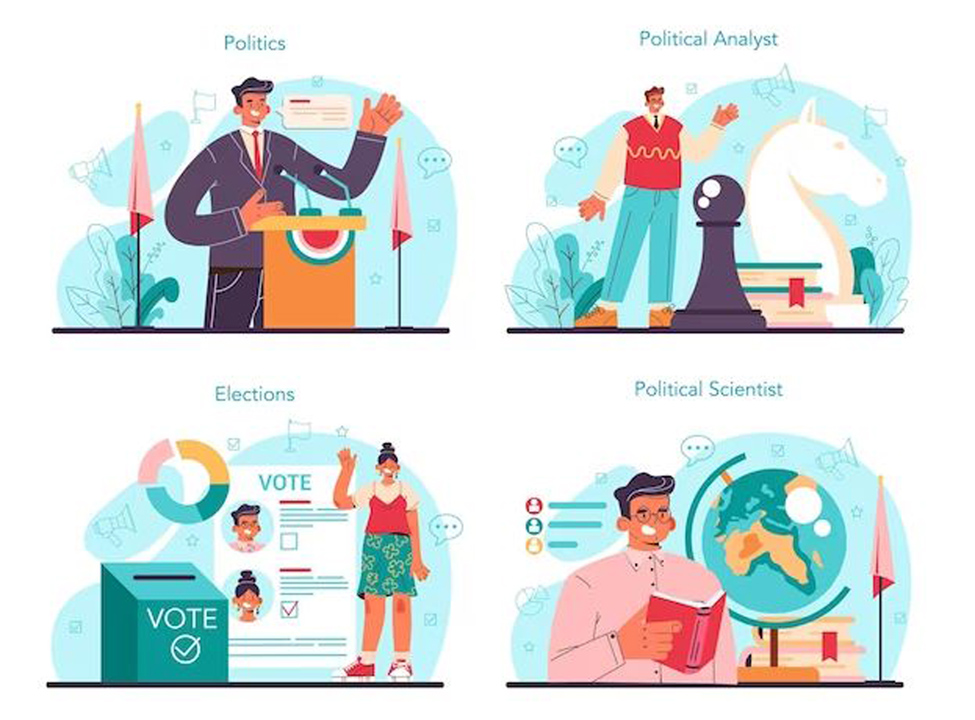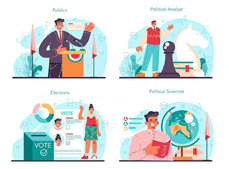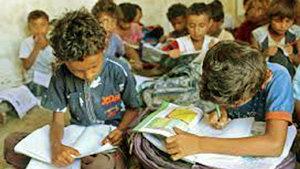Politics and education are deeply intertwined, with the decisions made by politicians having a profound impact on the educational system. From shaping curriculum content to determining funding priorities, political policies have the power to transform the learning experiences of students. In this article, we will explore the ways in which politics affects education, shedding light on both the positive and negative consequences.

Image by freepik
Historical examples of politics influencing education policies
Throughout history, politics has played a significant role in shaping education policies. One notable example is the introduction of standardized testing in the United States. In the early 20th century, politicians argued that standardized tests would ensure equal educational opportunities for all students. Critics argue that these tests have led to a narrow focus on test preparation, neglecting other important aspects of education such as critical thinking and creativity.
Another example is the implementation of desegregation policies in the 1950s and 1960s, driven by political efforts to combat racial discrimination. These policies aimed to provide equal educational opportunities for all students, regardless of their race or ethnicity.
Current political issues impacting education
There are several pressing political issues that have a direct impact on education. One such issue is school funding. Politicians make decisions about the allocation of resources, which can significantly affect the quality of education that students receive. Inadequate funding can lead to overcrowded classrooms, outdated textbooks, and a lack of essential resources. Another current issue is the debate over school choice.
Politicians with differing ideologies argue about the merits of charter schools, voucher programs, and other alternatives to traditional public schools. These debates have far-reaching consequences for students and their families, as well as for the overall educational system.
Funding and resource allocation in education
The level of political commitment to education is reflected in budget allocations for schools and classrooms. Adequate funding is essential to provide students with a quality education. The distribution of resources is often influenced by political factors. In some cases, schools in wealthier areas receive more funding, while schools in economically disadvantaged areas struggle to meet basic needs.
This disparity in funding can perpetuate educational inequalities and hinder the academic success of students from marginalized communities. It is crucial for policymakers to prioritize equitable resource allocation to ensure that all students have an equal chance to succeed.
Curriculum and standards influenced by politics
Political ideologies can also shape the curriculum and standards in educational institutions. The content taught in schools is not immune to political influence. For example, debates over the teaching of evolution, climate change, and controversial historical events have often been driven by political considerations.
In some cases, politicians have attempted to influence the curriculum to align with their own beliefs or agendas. This politicization of education can lead to biased or incomplete instruction, limiting students’ exposure to diverse perspectives and critical thinking skills.
Role of teachers’ unions in political debates about education
Teachers’ unions play a significant role in political debates about education. These unions advocate for teachers’ rights, working conditions, and fair compensation. They also have the power to influence education policies through lobbying and collective bargaining. The involvement of teachers’ unions in politics is often a subject of controversy.
Critics argue that unions prioritize the interests of their members over the needs of students, while supporters argue that unions are essential for protecting the rights and well-being of educators, which ultimately benefits students.
Political ideologies and their impact on education policies
Political ideologies shape the priorities and policies of governments, which in turn affect education. Conservative ideologies often emphasize traditional values, discipline, and a focus on core subjects. This can result in policies that prioritize standardized testing, strict discipline, and limited flexibility in the curriculum. On the other hand, liberal ideologies often emphasize inclusivity, diversity, and a holistic approach to education.
This can lead to policies that promote multicultural education, social justice, and a broader range of subjects. Understanding the influence of different political ideologies is crucial for educators and policymakers to navigate the complexities of education policy-making.
Influence of political campaigns and elections on education
Political campaigns and elections have a significant impact on education policies. During election seasons, education often becomes a key issue for candidates vying for office. Promises of increased funding, improved school safety, and educational reforms are frequently made to appeal to voters.
It is important to critically evaluate these campaign promises and hold politicians accountable for their actions once they are in office. The outcomes of elections can shape the direction of education policies, either advancing or hindering progress in the educational system.
Advocacy and activism for educational policy change
Activism and advocacy play a crucial role in driving educational policy change. Individuals and organizations passionate about education can influence politicians and policymakers through grassroots movements, lobbying efforts, and public campaigns. By raising awareness about educational issues and advocating for evidence-based policies, activists can help shape the political discourse and push for positive change. Students, parents, teachers, and community members all have a role to play in advocating for a fair and equitable education system.
Importance of understanding the intersection of politics and education
Understanding the complex relationship between politics and education is crucial for both educators and policymakers. Recognizing the impact that political decisions have on educational systems allows us to work towards creating a positive and equitable learning environment for all students.
By engaging in informed discussions, advocating for evidence-based policies, and holding politicians accountable, we can strive for an educational system that truly serves the needs of every student.
Politics and education are deeply interconnected. From historical examples to current issues, funding decisions to curriculum development, politics affects every aspect of education. By understanding this intersection and actively participating in the political process, we can create a more equitable and effective educational system that prepares students for success in the modern world.




